
Find Help
More Items From Ergsy search
-

What is the Wealth Tax in the UK?
Relevance: 100%
-

What is the wealth tax in the UK?
Relevance: 100%
-

What is a Wealth Tax?
Relevance: 100%
-

What is the objective of a wealth tax?
Relevance: 96%
-

Would a wealth tax replace other taxes in the UK?
Relevance: 95%
-

Could a wealth tax encourage tax avoidance?
Relevance: 95%
-

Can a wealth tax be levied annually?
Relevance: 92%
-

How is a wealth tax typically calculated?
Relevance: 92%
-

Has the UK ever had a wealth tax?
Relevance: 92%
-

Why doesn't the UK have a wealth tax?
Relevance: 92%
-

Who is typically subject to a wealth tax?
Relevance: 92%
-
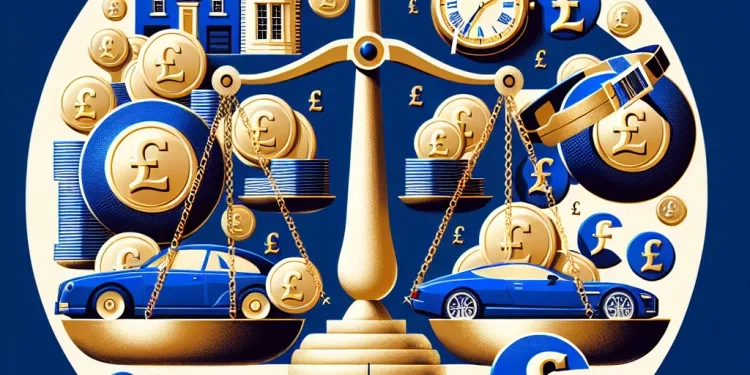
What arguments are made for a wealth tax in the UK?
Relevance: 92%
-
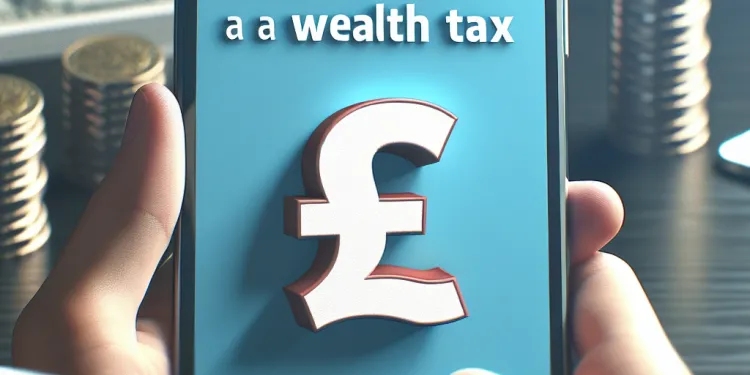
What are the challenges of implementing a wealth tax?
Relevance: 91%
-

How does a wealth tax differ from an income tax?
Relevance: 91%
-

What are the administrative costs of a wealth tax?
Relevance: 91%
-

Are there any countries currently implementing a wealth tax?
Relevance: 90%
-

What are common arguments in favor of a wealth tax?
Relevance: 90%
-

Can a wealth tax impact economic behavior?
Relevance: 89%
-

How do economists view the impact of wealth taxes?
Relevance: 89%
-

How might a wealth tax impact inequality in the UK?
Relevance: 89%
-
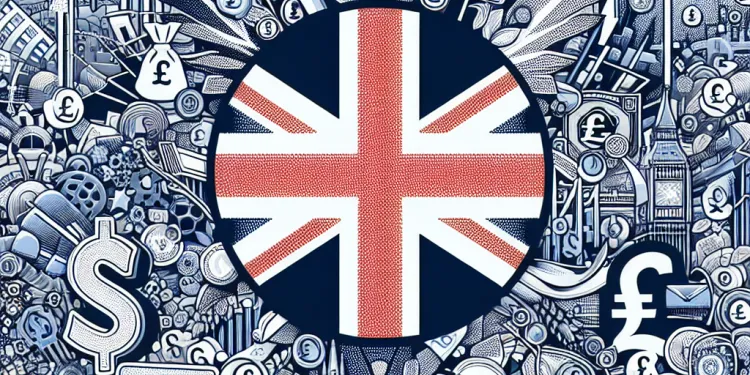
How do other countries implement a wealth tax?
Relevance: 89%
-

Could a wealth tax affect economic growth in the UK?
Relevance: 89%
-

Is real estate included in wealth tax calculations?
Relevance: 89%
-

Would a wealth tax apply to foreign assets?
Relevance: 88%
-
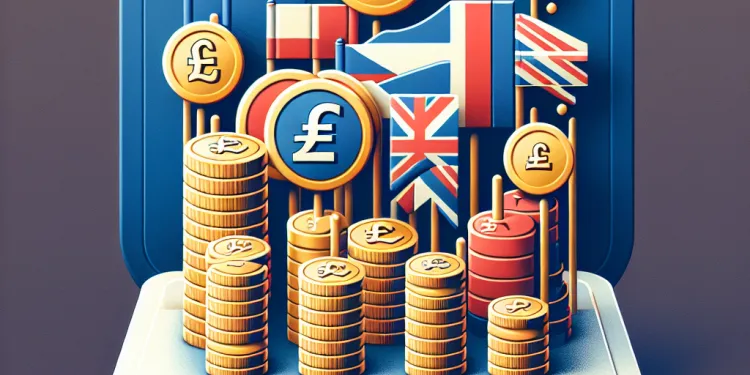
Has any political party in the UK supported a wealth tax?
Relevance: 87%
-

How might a wealth tax affect wealthy individuals?
Relevance: 86%
-

How do governments ensure compliance with wealth tax laws?
Relevance: 86%
-
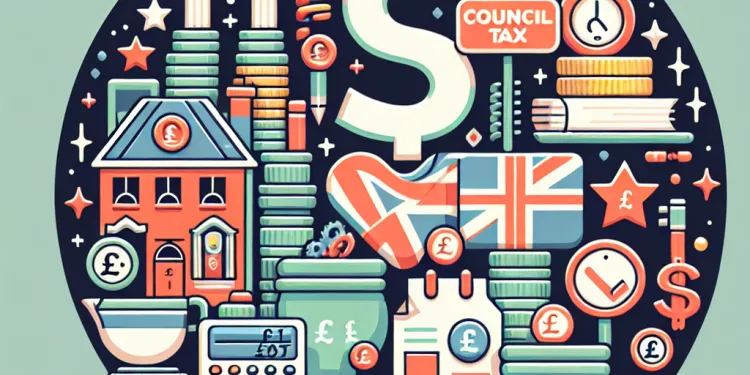
How does council tax relate to wealth in the UK?
Relevance: 81%
-
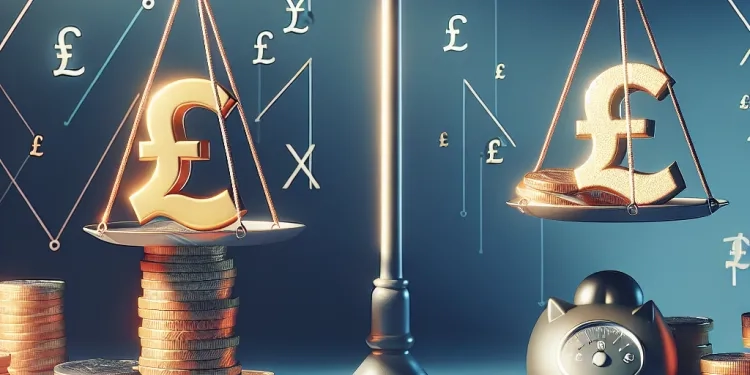
What taxes in the UK target wealth?
Relevance: 67%
-

Do wealth taxes differ between countries?
Relevance: 65%
-
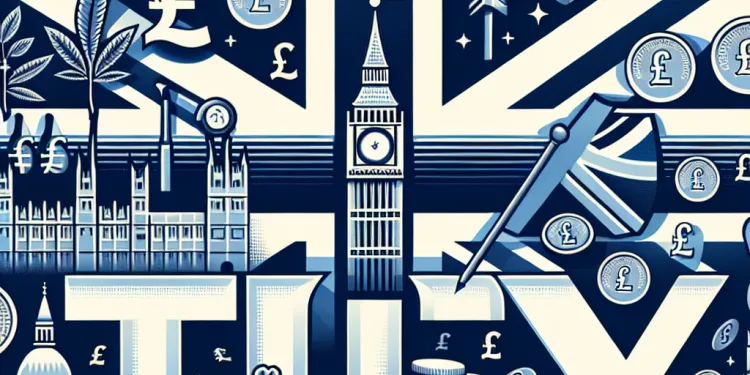
What are common criticisms of a wealth tax?
Relevance: 64%
-

Are there alternatives to a wealth tax for addressing inequality?
Relevance: 64%
-
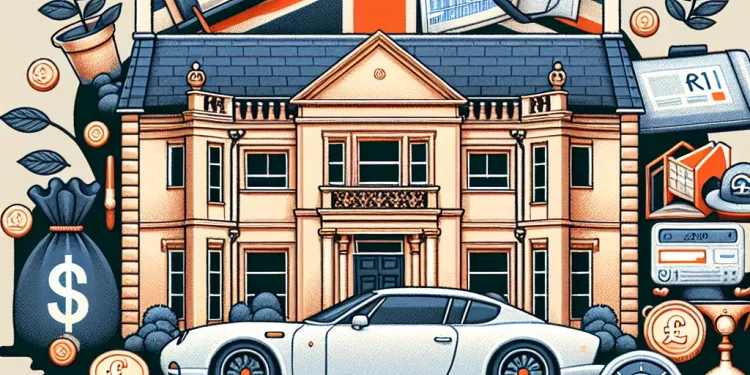
What exemptions are commonly associated with wealth taxes?
Relevance: 62%
-
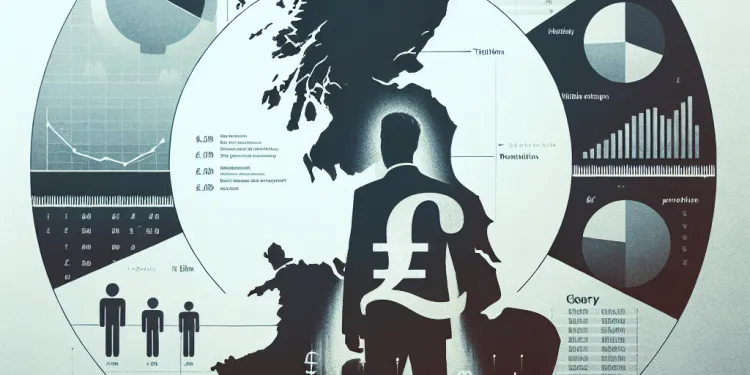
Do public opinion polls support a wealth tax in the UK?
Relevance: 61%
-

What types of assets are typically subject to a wealth tax?
Relevance: 59%
-

Has the idea of a wealth tax been discussed in political debates?
Relevance: 57%
-

Is there a proposal for a wealth tax in the UK?
Relevance: 49%
-

Are there professional advisors for inheritance tax planning?
Relevance: 47%
-
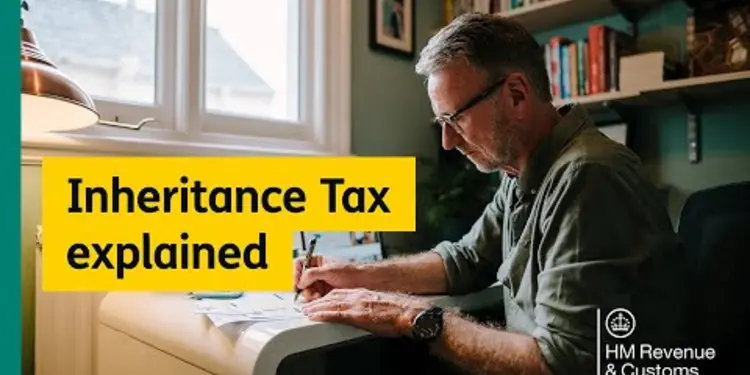
What is Inheritance Tax?
Relevance: 45%
-

Is there a difference between inheritance tax and estate tax?
Relevance: 44%
Introduction to Wealth Tax
A wealth tax is a levy on the total value of personal assets, including real estate, cash, stocks, and personal trusts. While several European countries have implemented such a tax, the United Kingdom does not currently impose a specific wealth tax. This omission raises questions about the rationale behind this decision, particularly in the context of economic inequality and public revenue needs.
Historical Context
The idea of a wealth tax in the UK is not new; it has been considered and debated several times in the past. During the 1970s, the Labour government under Harold Wilson proposed introducing a wealth tax, but the proposal faced significant resistance and was ultimately abandoned. Resistance primarily came from administrative, economic, and political concerns, as well as fears of capital flight and adverse economic impacts.
Economic Efficiency and Administrative Challenges
One reason the UK does not currently have a wealth tax is the complexity and cost associated with its administration. Accurately assessing and valuing personal wealth is a challenging task that requires significant resources. The administrative burden of implementing a wealth tax, in terms of both government cost and individual compliance, is a substantial deterrent. Furthermore, there is a concern that a wealth tax could lead to economic inefficiencies by discouraging investment and entrepreneurial activities.
Political Considerations
Politically, a wealth tax is often controversial. It tends to provoke strong opposition from affluent individuals and groups who are capable of exerting considerable political influence. In the UK, there is a persistent fear that implementing a wealth tax could lead to capital flight, where wealthy individuals move assets abroad to evade taxation. This concern is particularly relevant given the mobility of capital in a globalized economy.
Alternatives to a Wealth Tax
Rather than a wealth tax, the UK government has chosen to focus on other forms of taxation to address wealth inequality and generate public revenue. These include taxation on income, capital gains, and inheritance. Adjustments in these areas are often viewed as more practical and palatable alternatives. For example, increasing the rates for capital gains tax or expanding the scope of inheritance tax might achieve similar objectives to a wealth tax without the administrative complexities.
Public Debate and Future Considerations
The debate over implementing a wealth tax in the UK continues, especially as income and wealth disparities become more pronounced. Proponents argue that a wealth tax could play a critical role in reducing inequality and funding public services. However, without significant political and public support, coupled with solutions to the practical challenges, a wealth tax remains unlikely in the immediate future. As economic conditions and public attitudes evolve, the viability of a wealth tax in the UK could be revisited, but for now, it remains off the agenda.
What is a Wealth Tax?
A wealth tax is money people have to pay based on how much stuff they own. This includes things like houses, money, shares, and trusts. Some countries in Europe have this tax, but the UK does not. This makes people wonder why, especially when there are talks about fairness in how money is shared and the need for government money.
History of Wealth Tax
People in the UK have talked about a wealth tax before. In the 1970s, there was an idea to start a wealth tax. But many people did not like this idea, so it did not happen. People were worried about how it would work, how it might hurt the economy, and if rich people would move their money elsewhere.
Why is a Wealth Tax Hard?
It is hard for the UK to have a wealth tax because it is complicated and expensive to do. Counting and checking everything people own takes a lot of work. It could also stop people from investing their money in businesses because they might not want to pay extra tax.
Politics of Wealth Tax
Wealth tax is a hot topic in politics. Rich people do not like it and have a lot of power to say so. In the UK, there is a worry that if there is a wealth tax, rich people will take their money out of the country to avoid paying it. This is because money can easily move around the world.
Other Ways to Tax Wealth
Instead of a wealth tax, the UK uses other taxes to help with fairness and get money for public services. These are taxes like income tax, capital gains tax, and inheritance tax. Changing these taxes can also help, like raising rates or including more people, without the problems of a wealth tax.
Talking about Wealth Tax in the Future
People still talk about having a wealth tax in the UK. Some say it could help make things fairer and pay for services. But, it is not likely to happen soon because it is hard to do and needs a lot of support. Maybe in the future, if things change, they will look at it again. For now, it is not planned.
Frequently Asked Questions
What is a wealth tax?
A wealth tax is a tax based on the market value of assets owned. It can apply to households or individuals, with taxes levied on total asset ownership.
Does the UK currently have a wealth tax?
No, the UK does not currently have a wealth tax specifically targeting the wealth or assets of individuals.
Has the UK ever had a wealth tax?
The UK has discussed and considered a wealth tax in the past, particularly during the 1970s, but has never implemented a broad-based wealth tax.
Why is there opposition to a wealth tax in the UK?
Opponents argue that a wealth tax could be difficult to administer, potentially lead to capital flight, discourage investment, and might not generate as much revenue as expected.
What are the administrative challenges of implementing a wealth tax?
Challenges include valuing non-liquid assets annually, dealing with fluctuations in asset prices, and preventing tax avoidance.
Could a wealth tax encourage capital flight from the UK?
Yes, critics suggest that wealthy individuals might relocate to countries with more favorable tax regimes to avoid the tax.
What is capital flight?
Capital flight refers to the movement of assets or money from one country to another to avoid taxes or economic instability.
Are there existing taxes on wealth in the UK?
The UK taxes wealth through inheritance tax, capital gains tax, and property tax (council tax).
How does inheritance tax work in the UK?
Inheritance tax is levied on the estate of a deceased person. It is paid if the estate's value exceeds a certain threshold, with some exemptions and reliefs available.
What are the arguments in favor of a wealth tax?
Proponents argue it could reduce inequality, generate revenue, and ensure that the wealthy contribute their fair share to public finances.
Do any other countries have a wealth tax?
Yes, countries like Norway, Spain, and Switzerland have some form of wealth tax, though the specifics vary considerably.
What alternatives to a wealth tax exist in the UK?
Alternatives include reforms to existing taxes, like increasing capital gains tax, or enhancing tax enforcement measures to reduce evasion.
Why might a wealth tax be considered politically challenging?
It could be unpopular with wealthy voters and might face opposition from influential groups, making it difficult to implement.
Could a wealth tax impact investment in the UK?
Critics argue it might deter investment if investors perceive the tax environment as unfavorable.
How significant are wealth disparities in the UK?
Wealth disparities in the UK are significant, with the top percentage owning a large portion of total wealth, sparking debates on inequality.
Has COVID-19 influenced the wealth tax debate?
The pandemic has intensified discussions on wealth inequality and public sector funding, with some advocating for a wealth tax as a solution.
How might a wealth tax affect economic behavior?
It could impact savings and investment decisions, possibly leading to tax avoidance strategies or changes in asset ownership.
What role do public perceptions play in the wealth tax debate?
Public perceptions can shape political feasibility, with support potentially driving policy changes or opposition hindering implementation.
Can a wealth tax be effectively enforced?
Effective enforcement would require comprehensive asset reporting systems, international cooperation on asset disclosure, and robust tax administration.
What precedent does the UK have for taxing wealth-derived income?
The UK taxes income derived from wealth through capital gains tax and income tax on interest and dividends.
What is a wealth tax?
A wealth tax is a kind of money people pay to the government. It is based on how much money and things they own. People who have a lot of money or valuable things might need to pay this tax.
Helpful Tips:
- Use simple words when talking about money and taxes.
- Look at pictures or videos to understand better.
- Ask someone you trust to explain it to you.
A wealth tax is a type of tax. You pay it based on how much your things are worth, like houses or cars. This tax can be for families or just one person. It is about all the things you own.
Does the UK have a tax on wealth right now?
The UK does not have a specific tax called a "wealth tax" at the moment. This means there is no single tax just for having a lot of money or expensive things.
Instead, the UK has other kinds of taxes. These might include:
- Income Tax: You pay this on the money you earn from your job.
- Capital Gains Tax: You pay this when you make money by selling something valuable, like a house or stocks.
- Inheritance Tax: This is a tax on money or property you leave to others when you die.
These taxes are not the same as a wealth tax, but they can affect people with a lot of money or valuable things.
If you want help with understanding taxes, you can:
- Ask a trusted adult or friend.
- Use tools like voice-to-text to hear the information.
- Visit websites with simple explanations or videos about taxes.
No, right now the UK does not have a special tax for rich people's money and things they own.
Did the UK ever have a money tax for rich people?
In the past, the UK talked about a tax on wealth. This was mostly in the 1970s. But they never decided to use a tax like that for everyone.
Why do some people not like the wealth tax in the UK?
A wealth tax means that rich people give some of their money to the government. Some people do not like this idea.
Here are some reasons why:
- Rich people say they already pay a lot of money in other taxes.
- They think a wealth tax is not fair. They believe it takes away money they have worked hard to save.
- Some people worry that rich people might move to other countries to avoid paying the tax.
To understand better, you can:
- Watch videos that explain taxes simply.
- Use pictures and charts to see how taxes work.
- Ask someone to explain if you have questions.
Some people think a wealth tax could be hard to manage. They worry rich people might move their money to other countries, invest less, and that the tax might not make as much money as hoped.
What are the problems with starting a wealth tax?
There are some problems we need to think about. First, it is hard to say how much assets that can't be easily sold are worth every year. Second, asset prices can go up and down a lot. Third, we need to stop people from trying not to pay taxes.
To help understand this better, you can use tools to look up words you don’t know. Also, talking with someone else about this can help it make more sense.
Would a wealth tax make rich people leave the UK?
Yes, some people say that rich people might move to other countries where taxes are lower to not pay higher taxes.
What is capital flight?
Capital flight means money leaving a country. Sometimes, people or businesses move their money to another country. They might do this if they are worried about losing it.
People might be scared if the government makes new rules. Or if money in the country is worth less.
To make it easier:
- Use pictures to show how money moves
- Tell a simple story about why money leaves
- Ask someone to read with you if needed
Capital flight means when money or things of value are moved from one country to another. This is done to avoid paying taxes or because the country is not stable.
Here are some helpful tools and tips:
- Use a dictionary to understand difficult words.
- Ask someone to explain if you don't understand.
- Break down big words into smaller parts to read them.
Does the UK have taxes on wealth?
The UK collects money from people’s wealth in a few ways. One way is when someone dies and leaves money or things to others. This is called inheritance tax. Another way is when people make money from selling things like houses or shares. This is called capital gains tax. People also pay a tax for owning a home. This is called property tax or council tax.
If you find it hard to understand taxes, try using pictures or videos that explain them. You can also ask someone you trust to explain it to you.
What is inheritance tax in the UK?
When someone dies, their money and things are passed on to others. In the UK, there may be a tax to pay on this. This is called inheritance tax.
If you have to deal with inheritance tax, it can be helpful to use colorful charts or drawings. These can help you see what needs to be done.
Inheritance tax is money that must be paid when someone dies and leaves behind money or things. This tax is only paid if what they left is worth more than a certain amount. Sometimes, there are special rules or discounts that mean you pay less.
Using helpful tools like reading aids, or asking someone to explain it in a different way, can make it easier to understand.
Why do some people think a wealth tax is a good idea?
Some people think it can help make things fairer, bring in money, and make sure rich people pay what they should to help everyone.
Recommended tools: - Audiobooks can help by reading information out loud. - Visual aids and simple charts can make ideas easier to understand. Techniques: - Highlight or underline important words. - Take short breaks while reading to help stay focused.Do other countries have a tax on rich people's money?
Yes, some countries have a rule where people pay extra money if they have a lot of money or things.
Countries like Norway, Spain, and Switzerland have this rule.
But the rules are not the same in each country.
What other ways can the UK collect money instead of a wealth tax?
There are other ideas too. One idea is to make changes to taxes we already have, like making people pay more on money they make from selling things for more than they bought them. This is called 'capital gains tax'.
Another idea is for the government to do a better job at making sure everyone pays their taxes. This means making it harder for people to cheat and not pay what they owe.
If you find reading hard, try tools that read out loud or change words to easier ones. Practicing with someone else can help, too.
Why is it hard for the government to make a tax for rich people?
A tax for rich people can be hard because:
- Rich people might not like it and say it's not fair.
- Some people in the government might not agree on it.
- It can be hard to decide who should pay this tax.
- Rich people might try to hide their money to not pay the tax.
Here are some tools that can help understand better:
- Ask someone to explain it to you in a simple way.
- Watch videos that explain taxes for rich people.
- Use apps that read text out loud.
This idea might not be liked by rich people. Strong groups might try to stop it, making it hard to do.
Will a money tax make people invest less in the UK?
Some people say that if the tax rules seem bad, it might scare away people who want to invest money.
How big is the gap between rich and poor people in the UK?
In the UK, some people have a lot more money than others. This is called a wealth gap. Let's think about:
- How much money do rich people have?
- How much money do poor people have?
- How does this affect their lives?
To help understand, you can use tools like picture charts or videos to explain the difference. Talking to a teacher or a friend can also help.
In the UK, some people have a lot more money than others. A few people have most of the money. This makes people talk about whether it is fair.
Has COVID-19 changed the talk about wealth tax?
COVID-19 is a sickness that spread all over the world. Some people think it might have changed how we talk about taxes for very rich people.
Here are some ways to make it easier to understand:
- Use simple words and short sentences.
- Read one part at a time. Take breaks if you need to.
- Ask someone you trust to explain if you're confused.
The pandemic has made people talk more about money and how it is shared. Some people think we should have a special tax on very rich people to help give more money to important public services everyone uses.
What happens if rich people pay more taxes?
This might change how people save and invest their money. Some might try to avoid paying taxes or change who owns their things.
What do people think about the wealth tax?
When we talk about a wealth tax, we mean asking rich people to pay more money to help everyone. It's important to know what everyone thinks about this. People’s thoughts and feelings can change the rules. If people agree, then the rules to make rich people pay might happen. But if many people don’t like it, then it might not happen. Using pictures or simple charts can help us understand what people think. Talking to others or using apps that read out loud can also help us learn more.
What people think can change what happens in politics. If lots of people agree with an idea, it can help make new rules. But if many people disagree, it can stop new rules from happening.
Can a wealth tax work well?
A wealth tax is when rich people pay money to the government because they own a lot of things, like houses and money.
For it to work well, the government needs to make sure everyone pays what they should.
Some tools can help:
- Clear Rules: There should be simple rules so everyone knows what to pay.
- Good Tracking: Using computers to track who owns what can help.
- Help and Support: People should get help if they find it hard to understand.
To make sure that rules are followed, we need some important things:
- Good systems to report what people own.
- Countries working together to share what people have.
- Strong rules to collect taxes.
How has the UK taxed money made from wealth before?
The UK charges tax on money you make from your wealth. This is called capital gains tax. You also pay tax on money earned from interest and dividends.
Useful Links
This website offers general information and is not a substitute for professional advice.
Always seek guidance from qualified professionals.
If you have any medical concerns or need urgent help, contact a healthcare professional or emergency services immediately.
Some of this content was generated with AI assistance. We’ve done our best to keep it accurate, helpful, and human-friendly.
- Ergsy carfully checks the information in the videos we provide here.
- Videos shown by Youtube after a video has completed, have NOT been reviewed by ERGSY.
- To view, click the arrow in centre of video.
- Most of the videos you find here will have subtitles and/or closed captions available.
- You may need to turn these on, and choose your preferred language.
- Go to the video you'd like to watch.
- If closed captions (CC) are available, settings will be visible on the bottom right of the video player.
- To turn on Captions, click settings .
- To turn off Captions, click settings again.
More Items From Ergsy search
-

What is the Wealth Tax in the UK?
Relevance: 100%
-

What is the wealth tax in the UK?
Relevance: 100%
-

What is a Wealth Tax?
Relevance: 100%
-

What is the objective of a wealth tax?
Relevance: 96%
-

Would a wealth tax replace other taxes in the UK?
Relevance: 95%
-

Could a wealth tax encourage tax avoidance?
Relevance: 95%
-

Can a wealth tax be levied annually?
Relevance: 92%
-

How is a wealth tax typically calculated?
Relevance: 92%
-

Has the UK ever had a wealth tax?
Relevance: 92%
-

Why doesn't the UK have a wealth tax?
Relevance: 92%
-

Who is typically subject to a wealth tax?
Relevance: 92%
-

What arguments are made for a wealth tax in the UK?
Relevance: 92%
-

What are the challenges of implementing a wealth tax?
Relevance: 91%
-

How does a wealth tax differ from an income tax?
Relevance: 91%
-

What are the administrative costs of a wealth tax?
Relevance: 91%
-

Are there any countries currently implementing a wealth tax?
Relevance: 90%
-

What are common arguments in favor of a wealth tax?
Relevance: 90%
-

Can a wealth tax impact economic behavior?
Relevance: 89%
-

How do economists view the impact of wealth taxes?
Relevance: 89%
-

How might a wealth tax impact inequality in the UK?
Relevance: 89%
-

How do other countries implement a wealth tax?
Relevance: 89%
-

Could a wealth tax affect economic growth in the UK?
Relevance: 89%
-

Is real estate included in wealth tax calculations?
Relevance: 89%
-

Would a wealth tax apply to foreign assets?
Relevance: 88%
-

Has any political party in the UK supported a wealth tax?
Relevance: 87%
-

How might a wealth tax affect wealthy individuals?
Relevance: 86%
-

How do governments ensure compliance with wealth tax laws?
Relevance: 86%
-

How does council tax relate to wealth in the UK?
Relevance: 81%
-

What taxes in the UK target wealth?
Relevance: 67%
-

Do wealth taxes differ between countries?
Relevance: 65%
-

What are common criticisms of a wealth tax?
Relevance: 64%
-

Are there alternatives to a wealth tax for addressing inequality?
Relevance: 64%
-

What exemptions are commonly associated with wealth taxes?
Relevance: 62%
-

Do public opinion polls support a wealth tax in the UK?
Relevance: 61%
-

What types of assets are typically subject to a wealth tax?
Relevance: 59%
-

Has the idea of a wealth tax been discussed in political debates?
Relevance: 57%
-

Is there a proposal for a wealth tax in the UK?
Relevance: 49%
-

Are there professional advisors for inheritance tax planning?
Relevance: 47%
-

What is Inheritance Tax?
Relevance: 45%
-

Is there a difference between inheritance tax and estate tax?
Relevance: 44%


